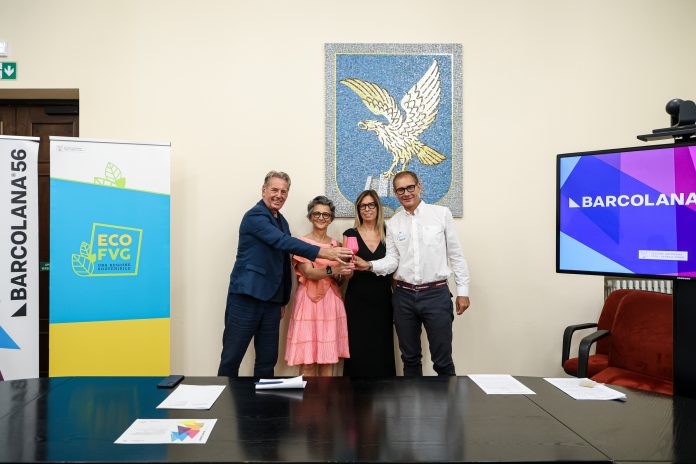by InTrieste
The renowned Barcolana regatta, held annually in Trieste, Italy, is embarking on a major sustainability push for its 2024 edition. The event, known for drawing thousands of spectators and participants from around the globe, has set ambitious goals to reduce its environmental footprint while enhancing its community impact.
Mitja Gialuz, President of the Società Velica di Barcola e Grignano, emphasized the event’s commitment to sustainability. “We’re the largest event in Friuli Venezia Giulia and one of Italy’s biggest sailing events,” Gialuz stated. “Our aim is to ensure that as the event grows—whether in terms of audience or number of activities—the overall environmental impact starts to decline.”
A significant step forward in this initiative is the collaboration with Justonearth, a startup specializing in environmental impact measurement using artificial intelligence and satellite imagery. The partnership will help Barcolana track and analyze various environmental parameters, providing a clearer picture of the event’s carbon footprint. “Last year’s data collection set a new standard for us,” Gialuz noted. “We’ll use this information to make targeted improvements and enhance sustainability.”
The 2024 edition will see the introduction of several key projects designed to mitigate the event’s environmental impact. Among the most notable is the “Glass Project,” a new initiative aimed at reducing waste generated during the regatta. In collaboration with the Regional Department for Environmental Protection and local business Italesse, Barcolana will distribute approximately 18,000 reusable glasses made from 100% recyclable materials. These glasses will be provided to participants and spectators, who can use them at various event locations and return them for reuse.
Fabio Scoccimarro, Regional Councillor for Environment and Energy, underscored the significance of such measures. “Large events pose a sustainability challenge due to the scale of attendance and logistics involved,” Scoccimarro said. “Barcolana’s efforts to minimize its environmental impact and promote ecological awareness align with our regional goals. This initiative is part of a broader strategy to reduce waste, limit plastic use, and foster better environmental practices.”
The initiative also extends to local businesses. Bars and restaurants in Trieste will have the option to purchase these recyclable glasses at a special rate, encouraging patrons to use and reuse them. This move is expected to reduce the number of disposable glasses littering the city during the regatta and enhance recycling efforts.
AcegasApsAmga, a local waste management company, is partnering with Barcolana to streamline recycling processes and improve waste management during the event. Luciana De Mori, Head of Communication at AcegasApsAmga, highlighted the collaborative nature of the project. “Sustainability requires collective action,” De Mori said. “Our role is to support these efforts through better waste management practices and public engagement.”
In addition to these measures, the event will also focus on reducing transportation-related carbon emissions. Plans include special trains, enhanced bus services, and traffic restrictions in the city center to encourage the use of public transport and reduce reliance on cars.
Gialuz expressed optimism about the combined impact of these initiatives. “Sustainability is a shared responsibility,” he said. “Our goal is to work together with all stakeholders—organizers, participants, and the local community—to make Barcolana a model for environmentally conscious large-scale events.”
As Barcolana prepares for its 2024 regatta, the new sustainability projects reflect a growing trend among major events to address environmental concerns and promote a greener future. With these initiatives, Barcolana aims to set a new standard for how large public gatherings can balance celebration with environmental stewardship.





























